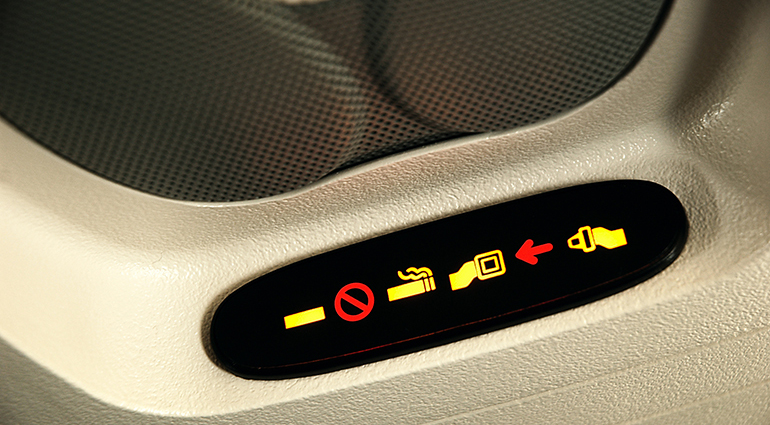Buckling Up!
Let us then approach God’s throne of grace with confidence. Hebrews 4:16
“The captain has turned on the seat belt sign, indicating that we are entering an area of turbulence. Please return to your seats immediately and securely fasten your seat belt.” Flight attendants give that warning when necessary because in rough air, unbuckled passengers can be injured. Secured in their seats, they can safely ride out the turbulence.
Most of the time, life doesn’t warn us of the unsettling experiences coming our way. But our loving Father knows and cares about our struggles, and He invites us to bring our cares, hurts, and fears to Him. The Scriptures tell us, “This High Priest of ours understands our weaknesses, for he faced all of the same testings we do, yet he did not sin. So let us come boldly to the throne of our gracious God. There we will receive his mercy, and we will find grace to help us when we need it most” (Hebrews 4:15–16
In seasons of turbulence, going to our Father in prayer is the best thing we can do. The phrase “grace to help us when we need it”—means that in His presence we can be “buckled” in peace during threatening times, because we bring our concerns to the One who is greater than all! When life feels overwhelming, we can pray. He can help us through the turbulence.
For further study, listen to “The Essence of Prayer” at discovertheword.org/series/the-essence-of-prayer/.
INSIGHT
Throughout the Scriptures we are reminded that God cares about our struggles. When David was pursued by the murderous Saul, he sought refuge in a cave (1 Samuel 22:1; 24:3–4). It is likely this is where he penned Psalm 142 as his prayer to God. The despondent David lamented that “no one is concerned for me” and he had no one to turn to for help (v. 4). But David did turn his troubles over to his God: “I cry aloud to the
Like David, we may be “caved in” by our troubles, finding ourselves “in desperate need” (v. 6). We may lament that “no one cares” (v. 4). But we too can turn our troubles over to God. We can make God our refuge, echoing in faith and trust, “You are my refuge” (v. 5), and we can cast our “anxiety on him because he cares for [us]” (1 Peter 5:7).
How does knowing God cares for you help you overcome worry and helplessness?


